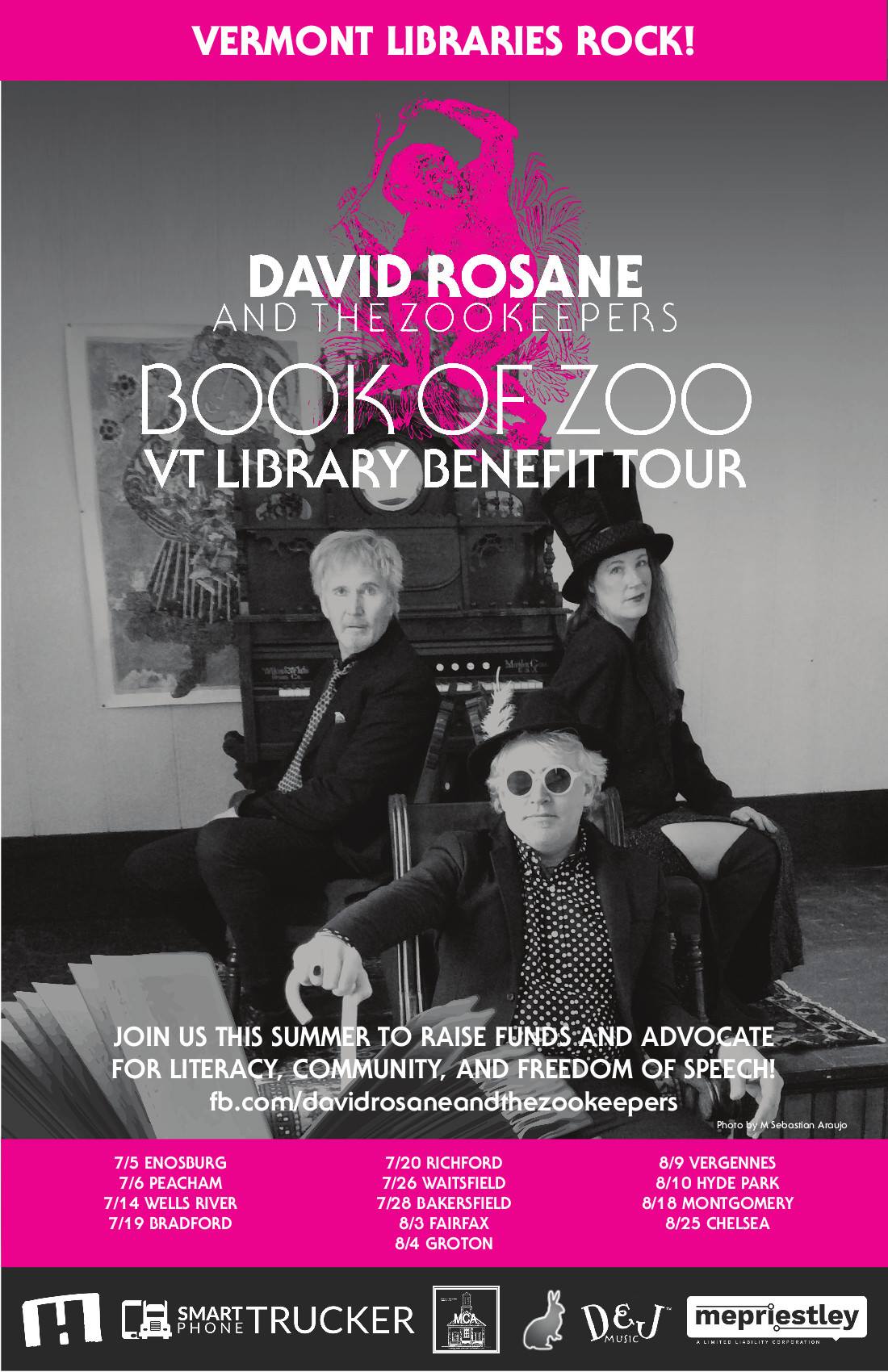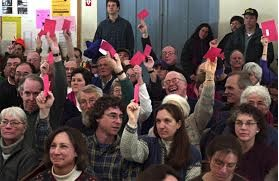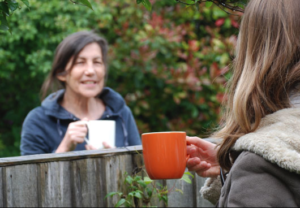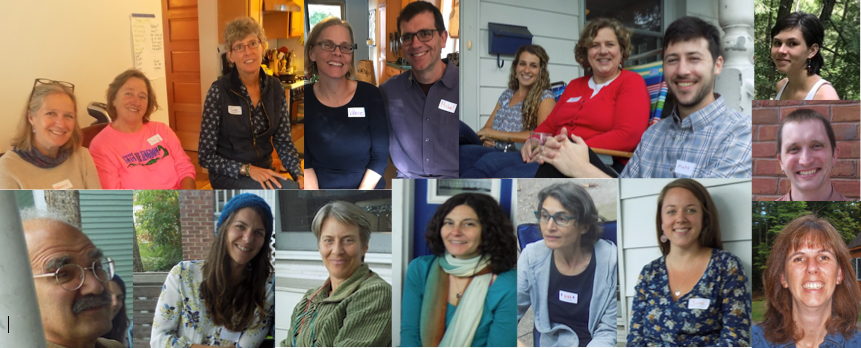Category Archives: Democracy
Rise of democracy entrepreneurs

An inspiring article in the Boston Globe recently about the importance of “democracy entrepreneurs,” meaning people who “use creative, innovative, and entrepreneurial techniques to make our civic life more participatory, inclusive, equitable, and just.”
That’s a straight-up description of what FPF does!
Check out the whole article here: bostonglobe.com/opinion/
Neighbors helping neighbors to get out and vote
With election day around the corner, we’ve been witness to many great examples of FPF members offering to help get their neighbors to vote.
 “I would love to help a couple of people who either don’t have a car or cannot drive, get to and from the polling booth next Tuesday. This would include pick-up at the person’s home, bringing them to the polling station, waiting for them to vote, and then driving them back home.” • Sonia in Williston
“I would love to help a couple of people who either don’t have a car or cannot drive, get to and from the polling booth next Tuesday. This would include pick-up at the person’s home, bringing them to the polling station, waiting for them to vote, and then driving them back home.” • Sonia in Williston
“If you or someone you know needs a ride to the polls November 6th – or needs a ride to Town Hall to get a ballot for early voting – please let me know. I am arranging to assist folks getting a ride.” • Jean in Reading
“When you read the postings in this forum about a hotly contested election for our local State Representative, all of them, no matter who the advocate is supporting, have been reasonable and respectful and I think it reflects well on the quality of the people who live here and the health of our community.” • Howard in Wells
All of us at Front Porch Forum encourage you to vote this election!
Vermont band making noise in libraries
 FPF happily supports the Book of Zoo Library Benefit Tour, now in the middle of their two-month tour performing at 13 rural libraries this Summer. Come hear some great music and support our rural public libraries, an important part of our communities! All donations from the concerts go to support literacy programs for the hosting library.
FPF happily supports the Book of Zoo Library Benefit Tour, now in the middle of their two-month tour performing at 13 rural libraries this Summer. Come hear some great music and support our rural public libraries, an important part of our communities! All donations from the concerts go to support literacy programs for the hosting library.
“As the public storehouse of knowledge, the public library can be viewed as a free society’s insurance that all ideas will be accessible to everyone who may want them. Ideas and information are certainly available elsewhere, but no other agency or organization can guarantee such a wide accessibility to ideas of all kinds that will be free of charge to all its customers.” • Librarian at the Arvin A. Brown Public library in Richford
“I was totally unprepared for the outpouring of cards, gifts, sweet wishes, reminiscences, and hugs that have come my way as my tenure as librarian has come to an end with my retirement! I am on Front Porch Forum to say: thank you all for your wonderful kindness and generosity, and for the joy of being allowed to love your children for all these years!” • Lynne in Middlesex
Post thanks to your own librarian(s) on FPF!
Vermonters gear up for lively discussion at Town Meeting day
Front Porch Forum members make good use of their local FPF for upcoming Town Meeting Day.
 “Several years ago, at a Town Meeting, I remember a very lively discussion among folks who had had enough of the high vehicle repair bills. A decision was made to instruct the town to pay for better quality gravel, with the slimy silt washed out of it. The Road crew embarked on a multi-year project of rebuilding our roads and now we can travel in the spring without worry of sinking into the muck and mire.
“Several years ago, at a Town Meeting, I remember a very lively discussion among folks who had had enough of the high vehicle repair bills. A decision was made to instruct the town to pay for better quality gravel, with the slimy silt washed out of it. The Road crew embarked on a multi-year project of rebuilding our roads and now we can travel in the spring without worry of sinking into the muck and mire.
I love Town Meeting for just this reason. We can get together as a group and make recommendations to the town. I know that not everyone can come every year, but it points out how important it can be to show up at least once in a while when there is an issue that is really important.
 See you at Town Meeting next Tuesday. If you can’t come, make sure you read the Town Report and if you have comments or questions, go to the Selectboard meeting.” • Marie in Richmond
See you at Town Meeting next Tuesday. If you can’t come, make sure you read the Town Report and if you have comments or questions, go to the Selectboard meeting.” • Marie in Richmond
Post and look to your local FPF for info on articles for discussion at Town Meeting Day! And remember to vote!
Our disconnects in values, relationships and social fabric
danah boyd was quoted on Wired yesterday…
“[W]e have a cultural problem, one that is shaped by disconnects in values, relationships, and social fabric. Our media, our tools, and our politics are being leveraged to help breed polarization by countless actors who can leverage these systems for personal, economic, and ideological gain.”
She went on to state “How do you reknit society? Society is produced by the social connections that are knit together. The stronger those networks, the stronger the society. We have to make a concerted effort to create social ties, social relationships, social networks in the classic sense that allow for strategic bridges across the polis so that people can see themselves as one.”
“Part of what is really collapsing here is that the networks have become too fragmented and too polarized. Technology doesn’t help; it simply magnifies the poles. This is dangerous and cyclical. Polarization leads to distrust and tribalism which leads to more polarization. So for me, the path forward, which requires business and the public sector and civil society working together, is about reconstructing the networks of America.”
In our own small way, this is Front Porch Forum‘s work… helping neighbors connect and build community… reconstructing networks of neighbors across political, class, racial and other boundaries.
Open discussions in our communities
We’re happy to see that Front Porch Forum is recommended and used by many to have important discussions on relevant town issues.
 “I am really liking this thread on minimum wage. This kind of discussion is exactly what Front Porch Forum was designed for. We should be having a lot more of these kind of discussions as long as we can keep to the issues and not personalize the debate or attack those we disagree with. Our community and indeed our culture in general would be much better served if we had civil discussion and debate about important issues as though we were speaking face-to-face, FPF seems like an excellent vehicle to have those discussions.”
“I am really liking this thread on minimum wage. This kind of discussion is exactly what Front Porch Forum was designed for. We should be having a lot more of these kind of discussions as long as we can keep to the issues and not personalize the debate or attack those we disagree with. Our community and indeed our culture in general would be much better served if we had civil discussion and debate about important issues as though we were speaking face-to-face, FPF seems like an excellent vehicle to have those discussions.”
• Jeff, Town Energy Coordinator, Richmond
“The public must be better informed about this School Capital project. Information put on a school website is not adequate public outreach. We recommend Front Porch Forum as it is a primary source of local information for me and many others in the community.” • John in Morrisville
Reach out to your town officials on FPF!
What will your contribution mean?
A contribution to Front Porch Forum will…
- Sustain and improve the FPF e-newsletter. FPF’s staff of 16 produce each issue, and provide personalized customer service seven days a week, serving 140,000 members in all 251 towns in Vermont!
- Deliver new features, like FPF’s online Business Directory. More improvements to the FPF experience are under development.
- Increase FPF membership in towns across Vermont and upstate New York. The more neighbors who participate in a Forum, the more vibrant and useful it is for all.
This recent posting from a FPF member says it all:
“I finally made my donation today, after saying I would get to it quite a while ago. It was quick and easy!”
• Maria in Barre
We’re in the homestretch of our October Supporting Member Campaign and we’re still $35,000 short of our goal. Make your contribution today to continue to bring this free service to every town in Vermont!
Thanks in advance from the Staff at FPF ““
Carolyn, Emily, Gisele, Jan, Jodi, Jonna, Linda, Lynn, Matt, Michael, Natanya, Nina, Renee, Robert, Suzie, Valerie, and Wendy

Next-door strangers… why helping neighbors connect with each other is vital
If you’re interested in Front Porch Forum’s work, take a look at this new article by Marc J. Dunkelman published by the Institute for Advanced Studies in Culture… Next-Door Strangers: The Crisis of Urban Anonymity…
The British anthropologist Robin Dunbar spent years researching isolated societies, both past and present. He discovered a remarkable similarity across geography and context. Human societies, he found, naturally sort themselves across three distinct levels of intimacy. The first, and most intimate, Dunbar labeled bands. These are the people who sleep together in overnight camps and know one another intimately. They rarely number more than a few dozen together. At the other end of the intimacy spectrum are tribes, groupings that live under the broadest and thinnest common banner. Fellow tribe members may share in certain rituals and traditions, but they rarely know one another personally.
Situated squarely between bands and tribes are what Dunbar termed villages. A village, generally speaking, marks a collection of bands, and groups of villages constitute a tribe. Correspondingly, fellow villagers are rarely as intimate with one another as they are with fellow members of their band, but they are more intimate than they would be with outside members of their tribe. Villagers do not necessarily know one another personally but they are often able to converse about something specific. They’d know if someone’s mother were ill, or if their child had achieved an outstanding feat. Upon seeing one another, their conversation would flow from a common frame of reference.
What held the American community together through its first four migrations was a very specific and shared sociological architecture. Colonial villages, frontier towns, urban tenements, and even some first-ring suburbs were classic examples of Dunbarian villages in that they were suffused by familiar, but non-intimate, relationships. The vicissitudes of ordinary life made it almost inevitable that people who lived near one another would be socially connected. It wasn’t just, as Alexis de Tocqueville wrote in the 1830s, that Americans were unusually likely to join voluntary associations. The demands of democratic government the fact that power flowed up from the grassroots prompted similarly situated strangers to get to know one another in pursuit of the common good.
Today’s reinvigorated cities boast much of what made urban America so vibrant during its heyday. The cultural amenities, the coffeehouse culture, the vast diversity, and even the convenience of public transit have emerged in places for which, in the mid-1970s, conventional wisdom predicted continued decline. But one feature distinguishes today’s urban meccas from those of eras past. The core sociological building block that Jane Jacobs celebrated in The Death and Life of Great American Cities the Dunbarian village instantiated in an urban neighborhood has all but collapsed.
FPF helps neighbors connect and build community. We accomplish that by hosting a statewide network of online neighborhood forums designed specifically to increase social capital among neighbors. About half of Vermont households participate on their local FPF. Learn more here.
FPF shines as a great format to engage in public awareness / discussion for voters
Across the state, members expressed their appreciation for FPF as a tool to engage and inform neighbors on important issues being voted on in their towns.
“I appreciate this forum and the way this passionate discussion is making it clear that all of us, regardless of our positions, should be sure to vote yay or nay”
• Lydia from Charlotte
“Dear Neighbors, I want to propose a non-partisan FPF discussion thread. The subject is: “Why do so few people vote?” or maybe “Why don’t more people vote?” • Charles from Burlington
“I try to stay current on the goings-on in my community, largely by reading FPF posts, so I am aware that there were house parties, coffee meetings with candidates, and information available online.”
• Jacey from Burlington
“As usual – FPF shines as a great format to accomplish a public awareness / discussion.”
• John from Barre
Front Porch Forum encourages civil discussion about important topics. Be sure your voice is heard!
About Blog
Ghost of Midnight is an online journal about fostering community within neighborhoods, with a special focus on Front Porch Forum (FPF). My wife, Valerie, and I founded FPF in 2006... read more
Post Categories
- Uncategorized
- PDF2009
- Calendar
- Northeast Kingdom
- podcast
- Peer Rental
- Localization
- Big Tech
- Events
- PDF2007
- Web Traffic
- Google AdSense
- Pay It Forward
- Elections
- berkmansunlight
- Maps
- Video
- Upstate New York
- Coupons
- Wildlife
- Mobile
- Viral Marketing
- Raffle
- Crisis Response
- Donations
- Lost & Found
- Real Estate
- College Students
- Gratitude
- Social Responsibility
- Orton Family Foundation
- Start ups
- Make It Your Own Awards
- Online Civility
- Clay Shirky
- Newspapers
- Humor
- How To Use FPF
- Online Classified Ads
- Peer Reviews
- Best of FPF
- Politics
- Community Management
- Economic Development
- Local Reviews
- Case Foundation
- Borrow and Lend
- Neighborhood Watch
- Good Government
- Small Business Advertising
- Citizen Journalism
- e-Vermont
- Democracy
- Local Search
- Knight Foundation
- Burlington
- MacArthur Fellows
- Civic Engagement
- Social Media
- social capital
- Social Networking
- Vermont
- Neighborhood
- Community Building
- Local Online
- Front Porch Forum
